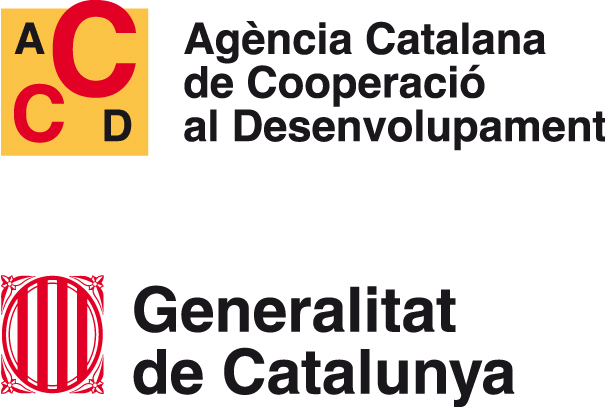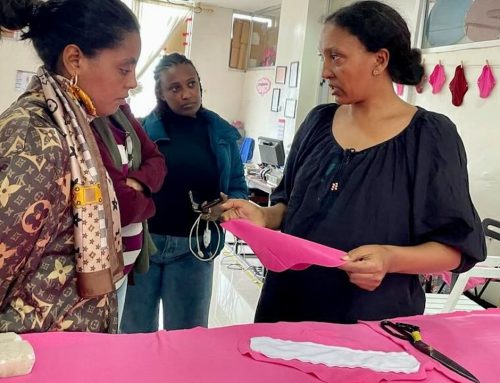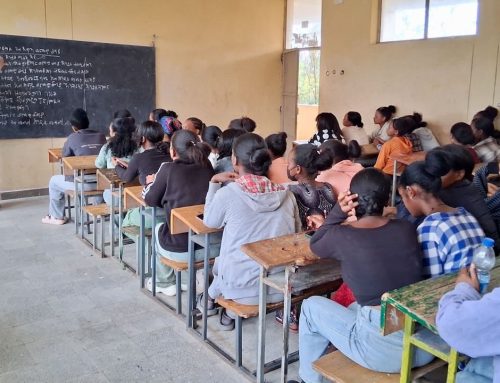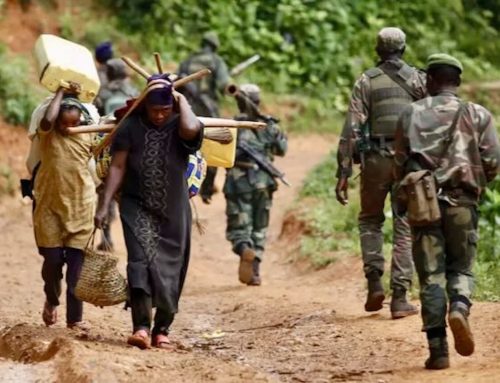Persistent Challenges in the Implementation of the Pretoria Peace Agreements in Tigray: On Year On
Ángel Olaran writes about the persistent challenges in the implementation of the Pretoria Peace Agreements in Tigray: One year later. They were signed in early November 2022 between the involved parties: the Government of Ethiopia and the Tigray People’s Liberation Front (TPLF), formally agreeing to a “cessation of hostilities.”
According to Father Olaran, the region of Tigray has met its obligations, including the withdrawal of soldiers from the fronts and the delivery of heavy and medium artillery. However, the implementation process of the agreements faces significant challenges and is in a critical phase. The deployment of an international monitoring team, crucial for assessing and monitoring compliance with the agreements, has not yet materialized, and the territorial occupation by the Fano and Eritrean armies persists.
Furthermore, the principle of territorial sovereignty and the issue of constitutional legality pose dilemmas for Tigray, which has always considered itself an integral part of Ethiopia. In addition, humanitarian aid, essential for the population’s survival, has been insufficient and affected by corruption. The closure of Tigray for many months during the conflict left the region dependent on this aid, and the lifting of restrictions has not completely eased the situation. The demobilization of young fighters, a cornerstone of sustainable peace, has not been effective, leading to a lack of security in the region.
Despite these challenges, efforts continue to achieve peace in Tigray, and the population is still awaiting significant improvements. Article 7 commits the federal government to cease military operations against the TPLF and seek the revocation of the terrorist designation. Meanwhile, the people of Tigray face uncertainty and seek solutions to their most pressing problems. There is still a long way to go before the region can enjoy the stability and prosperity it so desires.
Written by Ángel Olaran
The Agreements Signed in Pretoria
Today, October 8th. It has been 11 months since peace was signed. Tigray has fulfilled all the accepted obligations: the withdrawal of soldiers from the fronts and the delivery of heavy and medium artillery. The federal police now control the airports and other federal institutions in Tigray.
Tigray has agreed, as per Article 10, to assume the status of a Regional Interim Administration. Under the control of the federal government – that is, the Prime Minister (PM).
Articles of the negotiations
Article 1:
One of its objectives is to send an international team to Tigray with all kinds of freedoms, both in terms of movement and contact with people and institutions, to assess, verify, and monitor the implementation of what has been agreed.
As of today, if the commission is already present, it has not been operational.
Article 2:
a) Tigray is required to respect the territorial sovereignty and unity of Ethiopia.
In the case of Tigray, this principle has no value since Tigray has always considered itself a part of Ethiopia. It did not fight for its independence; it found itself attacked overnight by 5 armies: 4 national and one foreign, the Eritrean army. In the more than 30 years that I lived in Tigray before the conflict, I only saw the federal flag waving, never the regional one. Starting in early 2022, on public walls, as well as in farewells in letters, other writings, and personal greetings, the slogan was shared: “Tigray will survive.” Never, “Tigray will be free.” Now, the regional flag flies.
b) It refers to the legality of the federal Constitution.
This principle does not apply to Tigray. Before agreeing to attend the peace signing, Tigray demanded that what was stipulated in the Constitution before the start of hostilities be followed, including regional borders.
Article 3
Regarding the cessation of hostilities: Tigray has complied with what was established.
For the federal government, the occupation in Ethiopian territory remains unresolved – in the Tigray Regional Administration – by the Fano army from the Amhara region in the west and south, and the Eritrean army in the north. The two armies joined the federal forces in the fight against Tigray, with the promise that, after hostilities ended, each army would claim the Tigrayan territory they considered their own. Even before the peace signing, neither of the two armies accepted orders from the Ethiopian Prime Minister. Tigray is Ethiopia; the obligation lies with the federal government. The federal police protect Tigray’s airports, as well as federal institutions, universities, and more, in addition to the international borders. This is not yet the case with Eritrea.
Article 4
Regarding the protection of the civilian population:
It is known that in the parts of Tigray occupied by the Eritrean army and the Fano, there have been thefts, rapes, and abuses. The population has been forced to accept their new identity cards, with which they do not identify.
Article 5
Regarding Humanitarian Aid, the responsibility lies with the federal government.
In this regard, even before the commitment to the peace signing, Tigray had depended on this aid for nearly two years. At the start of the hostilities, the federal government closed all access to Tigray, both by air and land, closed the banks, cut the fiscal budget; and closed s all forms of phone, electronic, or other communications. Tigray depended on the daily shipment of 100 trucks of humanitarian aid.
In these two years, the families that received this monthly aid the most did not exceed THREE times. The norm was between two and one, and there were those who never received it even once.
Even with what was established in the peace agreement, some aid had reached the internally displaced. Soon it was heard that, due to corruption by politicians and others, the meager aid that had begun to arrive was being stopped. And from our vantage point, we began to wonder: Is the entry of something that wasn’t entering being prohibited?
According to the principle of the peace signing, it would involve the shipment of 100 or even more trucks daily, with a capacity of 40 tons each. Their journey to Tigray takes 3 days. It was said that the trucks, once in Tigray, were being sold directly to local merchants. They unloaded them in their stores or in the warehouses where flour was ground. And so, 100 trucks, unloading and loading by the labor of workers, and clandestine, on our narrow streets with warehouses that could barely accommodate the first 40 tons… Not even science fiction would dare to try it.
It is known that some corruption suspects have been arrested, and some have been transferred from their positions, but when it comes to the material aid, the wheat, nothing has been heard. It has been more than a month since the ban was lifted. Today, it is seen that caravans of a few trucks, perhaps 10, or maybe a few more, pass by, and it is still said to be destined for internally displaced. Nothing has reached any family in Wukro and its surroundings. And the same is heard from the displaced people. Will they solve it by denouncing more corruption and suspending the shipments?
The hospitals still do not receive medicine, and the furniture destroyed by the Eritrean army has not been restored, despite the principle that obliges the federal government to ensure that this type of aid reaches the population.
Article 6
It is agreed that the plan for the demobilization and reintegration of young people will ensure peace and order in Tigray.
Those of you who knew Tigray before the hostilities have always commented on the region’s social quality and security. Before the peace signing, for 2 years, there were no police in the streets, but there was security.
The reintegration plan consisted of young fighters from the fronts returning home without any material support or psychological or mental preparation for peace and with the emotional baggage, they had experienced in these two years. In the face of this abandonment, some young people are regrouping to take their lives on the streets and in stores, stealing, extorting. Here, criticism falls on both the regional and federal governments. The principle has produced the opposite result: it is creating a lack of law and order.
The local government spared no effort or resources in preparing them for war. The young people joined with the best of spirits to protect families, fields, and properties. And that spirit remained with them on the front lines. We have seen many of them being treated in a hospital where those with minor injuries arrived and then reintegrated with their colleagues.
Even today, on the way to the mentioned hospital, young boys and girls pass through our street, some with strong limps that make their movements painful to watch, but with peaceful, serene faces, and smiles during greetings. Rarely a sour expression. More than once, I have heard this kind of comment from people impressed by them. They don’t act like heroes.
When, on the occasion of funerals or other commemorations, the names of those who have died are mentioned, in recounting something about their lives: place of birth, parents, studies… something about their service on the front lines, their death, every time their names are mentioned in the story, which can be up to 5 or more times, they are preceded by “the hero,” “the heroine”… Their colleagues who haven’t died roam the streets.
Article 7
The federal government commits to ceasing military operations against the TPLF. The territorial occupations by the Fano and Eritrean armies are still pending.
The federal government will facilitate the Parliament’s revocation of the terrorist designation for the TPLF. The parliamentary notification arrived on March 22, 2023. Nearly 5 months after the signing.
In fact, in Pretoria, they sat alongside a terrorist group, “the junta,” as it was referred to every time, they mentioned the TPLF. We trust that, over time, no one will declare the Pretoria meeting illegal, given that it was negotiated with a terrorist junta. During the 30 years I spent in Wukro, there was never any news, whether on radio, press, or television, about any violent acts in Tigray for political, ethnic, regional, or other reasons. One questions the reason for this qualification by the Ethiopian Parliament. And the silence on this matter by international authorities.
The hatred for the junta was so intense that the Ethiopian commission members appointed for the meeting in Pretoria demanded all kinds of guarantees that it would not be held outside Tigrayan territory.
Other aspects:
The banks are operational, but, as in the entire country, you cannot withdraw more than €800 per day, depending on the exchange rate.
Electronic communication is decent. Road transport, both public and private, to Tigray remains closed; only air travel is functioning.
At the beginning of next week, I hope to send information about the atrocities that have occurred in Wukro. To ensure the accuracy of the information, it must be an official statement.
A refreshing national news story: the Prime Minister is building a fairy-tale-like palace with a budget equal to the annual federal budget. When asked in Parliament about the project’s expense, he replied that it is money offered to him personally, not related to the national budget, from which no one can demand an audit. To the parliamentarian who asked about the audit, he replied that, in any case, it would have to be done for the person who offered him the money. He added that if the parliamentarian couldn’t afford the trip, he would help him.
A strong hug.
Ángel
Wukro 08/10/23
You might be interested
If you wish, you can also read the brief in which Ángel Olaran speaks about the Human Rights Abuse Investigation Report in Ethiopia and the one that transmits the immense wave of mourning in Tigray, a valley of tears for the fallen on the front line.
With the collaboration of










